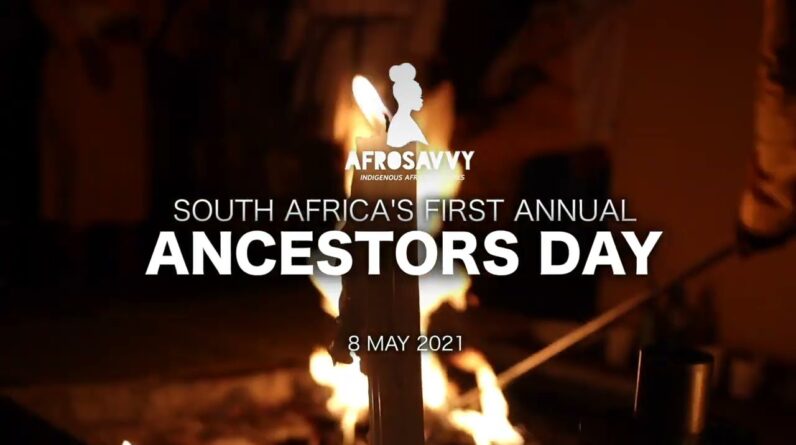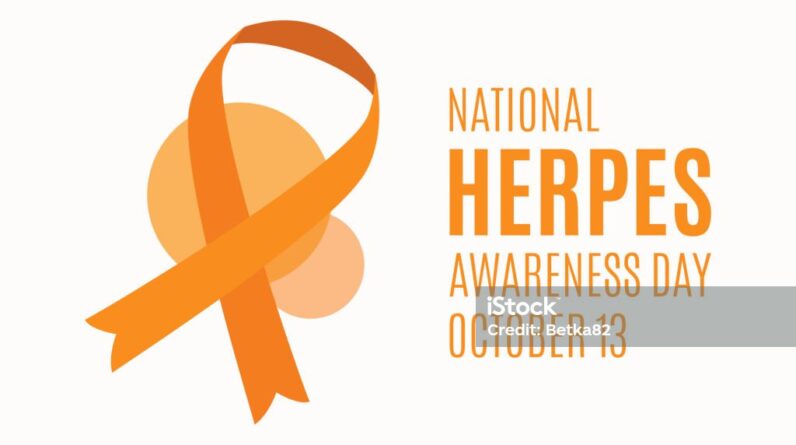
Ancestors’ Day is a cultural celebration that honors departed family members and their legacy. It is a time to pay respects, remember ancestors, and celebrate their influence on our lives.
Ancestors’ Day, also known as Tomb Sweeping Day or Qingming Festival, is an important cultural event observed by many Asian communities. This day, typically falling on April 4th or 5th, holds great significance as people gather to clean and tend to the gravesites of their ancestors.
It is a time to pay homage to those who came before us, expressing gratitude for their sacrifices and seeking their blessings for a prosperous future. Beyond the physical tasks of tomb sweeping and offering food, incense, and other symbolic items, Ancestors’ Day is a deeply spiritual occasion. It offers an opportunity for families to come together in reflection, storytelling, and remembrance, ensuring that the wisdom and traditions of previous generations are passed down to future ones.
The Significance Of Ancestors’ Day
Celebrating the wisdom and guidance passed down from our ancestors is an essential part of many cultures worldwide. Ancestors’ Day, also known as Ancestral Worship Day or Qingming Festival, is a time when people honor their ancestors and show their gratitude for the contributions they have made.
Understanding the cultural significance of Ancestors’ Day involves exploring the different traditions and customs associated with this observance. In some cultures, families visit ancestral graves and offer food, flowers, and burning incense as a sign of respect. This act symbolizes the connection between the living and the deceased, ensuring that the ancestors’ spirits are nourished and protected.
Others may perform ancestor worship rituals at home, creating altars with portraits or plaques honoring their ancestors. These altars physically represent the family’s lineage and provide a sacred space for prayers and offerings.
| Key Points |
|---|
| – Ancestors’ Day is a time for honoring the wisdom and guidance passed down from our ancestors. – Different cultures have various traditions and customs associated with Ancestors’ Day. – Visiting ancestral graves and offering food and incense is common in many cultures. – Creating altars at home with portraits or plaques is another way to pay homage to ancestors. |
Commemorating Ancestors’ Day Across Different Cultures
Ancestors’ Day Practices In Eastern Cultures
In Chinese culture, ancestral veneration holds great significance. It is a day when families honor their ancestors and pay respects at their gravestones or ancestral altars. This practice is believed to ensure the guiding and protecting influence of deceased family members.
In Japanese culture, Obon is an important event that takes place during the summer. This Buddhist custom revolves around commemorating ancestors through visits to graves, cleaning burial sites, lighting lanterns, and performing Bon Odori dances to welcome ancestral spirits. It’s a time for families to reunite and express gratitude towards their ancestors.
Ancestors’ Day Practices In Western Cultures
The Day of the Dead celebrations in Mexico occur from October 31st to November 2nd. Families construct altars known as “ofrendas” adorned with photos, flowers, favorite foods, and belongings of the deceased. Mexicans believe that during this time, the spirits of their ancestors return to visit and celebrate with them.
In Celtic traditions, the festival of Samhain is celebrated on October 31st. It is strongly associated with ancestor worship as it marks the end of the harvest season and the beginning of winter. People would light bonfires and leave offerings to appease and honor their departed loved ones.
Rituals And Customs To Honor Ancestors’ Day
Ancestors’ Day is a significant occasion celebrated by many cultures around the world to honor and pay respect to deceased ancestors. One common ritual is the setting up of ancestral altars and shrines, which serve as sacred spaces for connecting with ancestors. These altars are typically adorned with photographs, heirlooms, and sentimental objects that hold significance to the family lineage.
Another customary practice is offering the ancestors food, drinks, and symbolic items. This gesture symbolizes the provision of sustenance and ensures the spiritual well-being of the ancestors. Incense and candles are often burned during this time as a form of ancestral communication. The smoke and flickering flames are believed to carry messages between the earthly and spiritual realms.
Additionally, specific rituals and prayers are performed to strengthen the connection with ancestors. These rituals can vary depending on cultural traditions but are typically aimed at seeking guidance, protection, and blessings from the ancestors. During Ancestors’ Day, people gather as a community or within their families to share stories, express gratitude, and reflect on the wisdom and legacy left by their ancestors. It is a time of remembrance, reverence, and celebration of the lives that have paved the way.
Ancestral Genealogy And Research
Exploring genealogy as a way to honor ancestors can be a fulfilling and fascinating journey. Conducting genealogical research allows us to trace our family lineage and connect with our roots. By delving into our ancestors’ stories, we understand who we are and where we come from.
Utilizing online resources and archives is a valuable tool in ancestral research. The internet offers various databases, records, and websites dedicated to genealogical exploration. These resources provide access to birth, marriage, and death certificates, census records, immigration documents, etc. With just a few clicks, we can uncover valuable information that helps complete the puzzle of our family history.
Embarking on an ancestral genealogy journey allows us to honor our ancestors and strengthens our sense of identity and belonging. Discovering the stories of those who came before us is a testament to the resilience, struggles, and achievements that have shaped our family legacy.
Celebrities Honoring Their Ancestors
Stories of celebrities discovering their ancestral roots have captivated audiences worldwide. From TV shows and documentaries that explore celebrity genealogy to heartwarming personal journeys, these stories shed light on the importance of family history. Celebrities have used their platform to raise awareness about Ancestors’ Day, a day dedicated to honoring and remembering our forefathers.
These high-profile individuals are not merely involved in publicizing their own ancestral stories; they also help break down cultural barriers and bridge connections between different communities. By publicly sharing their own journeys, they encourage others to dive into their family histories and embrace the richness of their own heritage.
Through various means, such as social media campaigns, charity events, and public speeches, celebrities have successfully encouraged people to explore their roots on Ancestors’ Day. Their efforts have ignited a sense of curiosity and pride regarding ancestral heritage among the masses, thus fostering unity and appreciation for one’s lineage.
So, join in the celebration of Ancestors’ Day and discover the fascinating stories of celebrities connecting with their past, inspiring millions along the way.
Passing On Ancestral Knowledge To Future Generations
Ancestors’ Day is an important occasion to recognize and honor our forefathers and the knowledge they have passed down to us. Teaching children about their ancestral heritage is key to preserving family traditions and stories for future generations. By incorporating ancestral practices into modern-day life, we can ensure the continuation of these valuable customs.
One effective way to pass on ancestral knowledge is through storytelling. Sharing stories about our ancestors and their experiences helps children connect with their roots and understand the sacrifices made by their predecessors. These stories can deeply impact their sense of identity and belonging.
In addition to storytelling, it is essential to actively incorporate ancestral practices into our daily lives. This can include embracing cultural celebrations, following traditional rituals, and maintaining connections with extended family members. Children can develop a stronger connection to their ancestral heritage by actively participating in these practices.
Ancestors’ Day And Healing Ancestral Trauma
Ancestors’ Day is an important occasion in recognizing and healing collective ancestral trauma. This day serves as a way to honor our ancestors and gain insights into our lineage.
Psychological and spiritual approaches play a crucial role in the process of ancestral healing. By delving into our family history, we can acknowledge and begin to address the generational wounds that have been passed down.
Forgiveness and reconciliation are key elements in this transformative journey. By cultivating forgiveness within ourselves and finding ways to reconcile with our ancestors, we can create space for healing and growth.
Through this process, we can break the cycle of trauma and honor our ancestors’ legacy in a meaningful and impactful way.

Credit: za.pinterest.com
Honoring Ancestors In The Digital Age
In the digital age, Ancestors’ Day practices have been greatly influenced by technology. Online platforms and tools provide an accessible and convenient way for individuals to connect with their ancestral roots.
These platforms allow people to access genealogical databases, ancestry websites and participate in virtual heritage tours. The ease of digitally connecting with distant relatives and discovering shared ancestry has increased the reach of Ancestors’ Day celebrations.
Additionally, digitizing family photo albums and documents has become an important aspect of preserving ancestral heritage. By converting physical memorabilia into digital formats, families can protect their history from damage or loss.
The ability to store and share these files online also promotes the sharing and passing down of family stories and traditions. Embracing technology has allowed Ancestors’ Day to evolve and adapt to the modern world, ensuring future generations can continue to honor their ancestors.
Ancestors’ Day: A Time For Reflection And Gratitude
Ancestors’ Day is a sacred occasion for embracing the wisdom and lessons learned from our ancestors. It serves as a reminder to express gratitude for the sacrifices made by previous generations, whose resilience and perseverance paved the way for our present lives. Their legacy and heritage shape our personal identity, instilling within us a profound sense of belonging and roots.
Reflecting on the impact of ancestral heritage brings a deeper understanding of our cultural and historical significance. It allows us to appreciate the struggles and triumphs of our forefathers, acknowledging the obstacles they overcame to provide us with the opportunities we enjoy today.
This momentous occasion allows us to honor the traditions and customs passed down through generations. It prompts us to pay homage to those who came before us, recognizing their contributions in shaping our values, beliefs, and aspirations.
Let us seize this Ancestors’ Day to reflect on the past, express gratitude for our diverse heritage, and carry forward the lessons imparted by our ancestors, ensuring their legacy lives on.
Frequently Asked Questions For Ancestors’ Day
Why Is Ancestors Day Celebrated?
Ancestors Day is celebrated to honor and remember our past family members. It acknowledges their contributions, values, and sacrifices, fostering a sense of connection and gratitude to our roots.
Is There An Ancestors Day?
Yes, there is an Ancestors Day. It is a time to honor and remember our family’s past generations. We celebrate their contributions and achievements. Ancestors Day is an opportunity to connect with our roots and learn about our heritage.
What Is Ancestor Appreciation Day?
Ancestor Appreciation Day is a special occasion dedicated to honoring and reflecting upon our ancestors. It’s a time to show gratitude for their impact on our lives and preserve their legacy. This day celebrates our roots and helps us appreciate our ancestors’ contributions to our families and society.
How Do You Celebrate Ancestor Appreciation Day?
Celebrate Ancestor Appreciation Day by honoring your ancestors with rituals, family gatherings, and storytelling.
Conclusion
Ancestors’ Day is a significant occasion that allows us to honor and pay tribute to our roots. By celebrating and remembering our ancestors, we acknowledge our cultural heritage and gain a deeper understanding of ourselves. It is a time to reflect, connect, and appreciate the legacy they have left behind.
Join us in commemorating this special day and keep the memories of our ancestors alive for generations to come.





